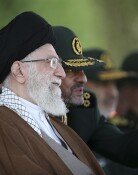Pres. Lee: Global FX Rate War Avoided for Now
Pres. Lee: Global FX Rate War Avoided for Now
Posted November. 13, 2010 12:51,
President Lee Myung-bak said Friday after the close of the Group of 20 summit in Seoul that the dialogue helped avoid a global war in foreign exchange rates and that the world will be stabilized.
We came up not only with principles on the conflict over foreign exchange rates but also with related guidelines and dates, he told reporters. This is remarkable progress.
The following is excerpts from his news conference.
Q: Compared to the agreement reached at the G-20 finance ministers and central bank governors meeting last month in Gyeongju, North Gyeongsang Province, how much progress was made on the foreign exchange rate dispute?
President Lee: The agreement on the currency issue was reached at the G-20 finance ministers meeting but was about guidelines and principles. At the summit, however, world leaders set not only guidelines but also dates. By the first half of next year, we will make detailed guidelines and review them. We also set a principle of resolving the issue at the next G-20 summit. This is really significant progress.
Q: The summit adopted Koreas proposal to adopt development as an agenda item. What was the reason and background for Korea, chair of the G-20 summit, to make the suggestion?
President Lee: First, Korea is a good role model for developing countries in that it achieved economic growth through development based on foreign aid and eventually became a donor country. In addition, G-20 member countries account for 85 percent of global GDP. The group has just 20 countries, however, and the G-20 is not just for those 20 countries. What is most important for more than 170 developing countries is to help them advance their economies by themselves. Of course, aid is necessary but the ability to stand on their own two feet is important. So Korea should help them based on its own experience.
Q: What efforts has Korea made to enhance the global financial safety net? What have been the results?
President Lee: Some said the strict policy prescriptions of the International Monetary Fund increased the burden on countries suffering from economic crises. In addition, there were fears over stigmatization leading to a decline in national image. We can now eliminate such fears. The IMF needs to prevent crises instead of helping countries after crises hit. We have a new lending system in which the IMF can help several countries at the same time.
yunjung@donga.com







